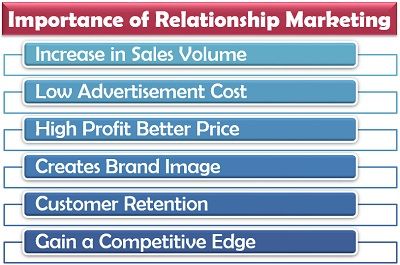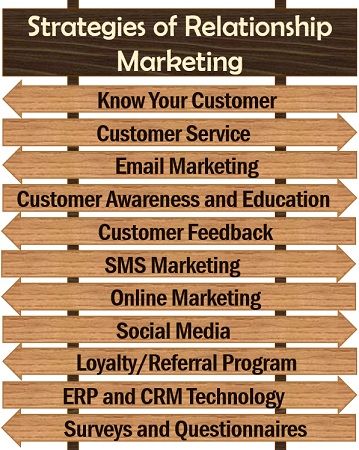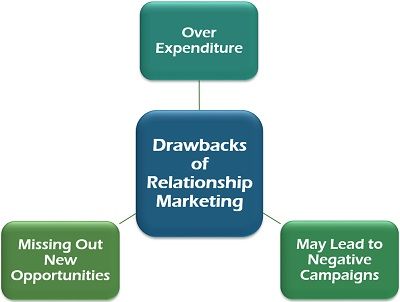Definition: Relationship Marketing is a modern approach to marketing which focuses on enhancing the customer experience and developing customer loyalty rather than increasing the sales volume and profit of the organization. Keeping the customers engaged and providing them with the highest possible value from their purchase is essential. Here comes the role of relationship marketing.
When the competition is high, and the customers are aware, the organizations cannot just rely on selling their products or services to them.
The customers always look for the organizations which provide an added value or advantage to them along with the product or service.
For Example; Nike, being the most recognized athletic wear brands, started it’s ‘Just Do It’ campaign to capture the attention of the non-athletes.
The advertisement featured a heavy boy wearing Nike apparel and running. Thus, it recognized the overweight people and tried to motivate them through the message that everything is possible if we try to do it.
Content: Relationship Marketing
Importance of Relationship Marketing
Customer relationship management is the essence of today’s competitive business environment. Creating new customers for the organization is not enough; enhancing the customer experience is also necessary for an organization.
Following are the various reasons for which relationship marketing has evolved as an essential part of any business:

- Increase in Sales Volume: Enhanced customer experience means an easy upselling and cross-selling of goods or services to satisfied customers. This ultimately increases sales volume.
- Low Advertisement Cost: A successful relationship marketing reduces the efforts on customer acquisition since it helps in retaining customers for long-term. Thus, decreasing the advertisement cost.
- High-Profit Better Price: A satisfied customer tends to bargain less for the prices and is ready to pay a fair price for the goods or services. This increases the profit margin of the seller.
- Creates Brand Image: A happy customer will promote the product or service among their peers, relatives and the known ones. This word of mouth creates a strong brand image of the organization.
- Customer Retention: Customer acquisition is not everything; meeting the customer needs, creating value for the customers and making them buy again and again is essential. All this is possible through customer relationship marketing.
- Gain a Competitive Edge: A loyal customer feels comfortable buying goods or services from one single store rather than shopping around at various places. This is an advantage for the organization over its competitors.
Strategies of Relationship Marketing
Maintaining cordial relations with the customers for the long term is a need rather than choice in the present digital scenario. This is because the customers are free to express their purchase experience through reviews over the social media.
It’s in the hands of the organization whether to create value for the existing customers or lose the potential buyers too.
Given below are the tools or ways through which an organization can positively connect with the customers instead of just selling the product or service to them:

Know Your Customer: KYC is all about keeping track of the necessary information about the customers and their requirements. It helps in providing a better service to the customers and reaching out to a more specified target audience.
Customer Service: A company must prioritize customer service and support for the product or service purchased by the customers. Customer satisfaction must be the core value of the company known to all, the employees, management and the customers too.
Email Marketing: Keep in touch with the previous as well as existing customers through email. Educating them about the offers and sale and wishing them on their special days, festivals, etc. makes them feel valued.
Customer Awareness and Education: One of the most effective ways of relationship marketing is to educate the customers and make them aware of the product or service and the benefits it provides, instead of trying to sell it to them.
Customer Feedback: The best way to show the customers that their suggestion and experience matters to the organization is to take the feedback from them. It also helps in enhancing the product or service as per the customer’s need.
SMS Marketing: Mobiles are the most popular means of effective communication nowadays. Organizations can stay connected with their customers through messages to assist, solve queries, to take feedback, wishing on birthdays or anniversaries, etc.
Online Marketing: Online shopping sites have emerged as a revolution in the past years where companies tend to sell, acquire and retain a vast customer base. Some of the most popular shopping sites are eBay, Amazon, Alibaba, etc.
Social Media: Today, people spend most of their time on social media sites like facebook, twitter, Instagram, etc. These platforms are used by organizations to capture the attention of these potential or existing customers and to stay connected with them to understand their needs, reviews, problems, etc.
Loyalty/Referral Program: Running loyalty programs is one of the most common ways of relationship management. It is giving some reward points to the customers each time they shop from the particular store which they can redeem for some benefit, freebie or discounts.
The referral program is another way where the existing customers are rewarded for creating more customers for the business through mouth publicity.
ERP and CRM Technology: Customer Relationship Management (CRM) technology is used by the organizations to keep track of the existing as well as potential customers. It also provides their reviews about the product or service they have bought.
Enterprise Resource Planning (ERP) is the software facilitating the sharing of the information received through CRM to all the departments within the organization to enhance the customer experience in future.
Surveys and Questionnaires: Conducting studies and getting the questionnaire filled by the previous customers can make the company aware of the market issues faced, after or before making a purchase.
This can make the organization aware of the reasons for shifting of previous customers to other product or service or other organization.
Drawbacks of Relationship Marketing
Relationship marketing is a long-term process for organizational growth. However, it has the following shortcomings:

- The companies tend to spend a lot at times on retaining the customers, which may lead to an excessive financial burden on the organization.
- Some fickle-minded people may spread the negative message regarding the organization or its product or service to start a negative campaign again the company.
- The organization may overlook the new potential market while concentrating on its existing customers and their retention.
Conclusion
Relationship marketing is more concerned about attaining the long-term vision instead of fulfilling the short-term objectives.
It works on the principle of ‘slow and steady wins the race’.
GERALD RUKAMBIRO says
Article provides detailed insight into the workings, benefits and costs of relationship matrketing.
Dorothy says
Insightful.
Susmita Ghosh says
Crisp and brief idea of relationship marketing . good article
Dhanush T Suvarna says
Thanks a lot .
Indeed was a best help for my Seminar on R.M